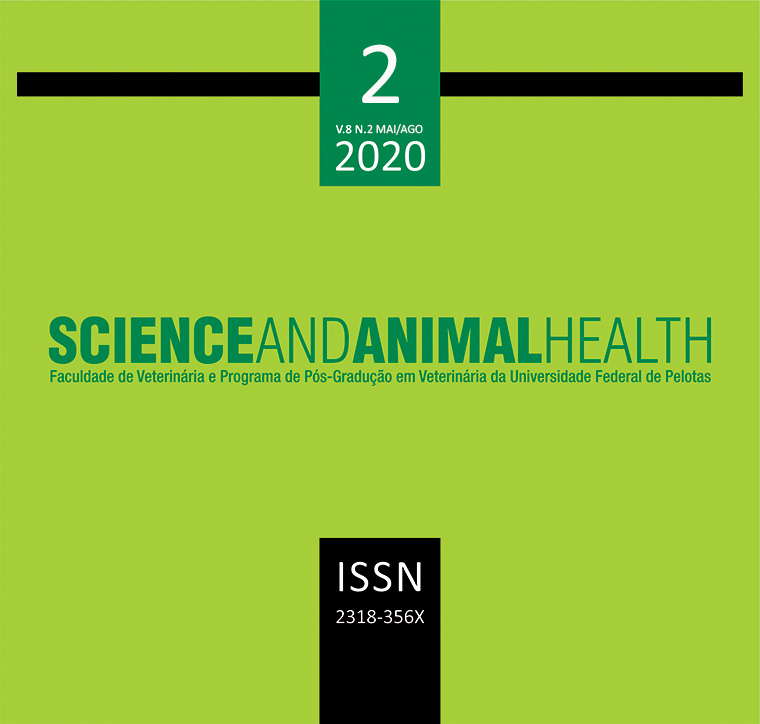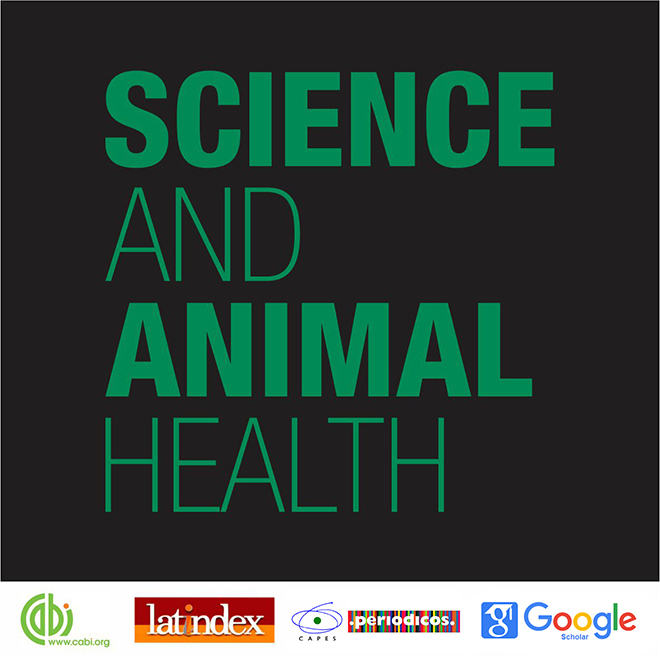PRODUCTIVE PERFORMANCE AND EGG QUALITY OF JAPANESE QUAILS FED WITH WHOLE RICE DIETS
Resumo
This study aimed to evaluate the effects of substituting corn with whole rice (WR) in the diet of Japanese quails (Coturnix coturnix japonica) on productive performance, egg quality, sensory characteristics of eggs, and yolk color. One hundred 215-day-old Japanese quails were randomly allotted to the treatments in a completely randomized design. Five treatments were tested: 0% WR (control diet based on corn and soybean meal); 25% WR; 50% WR; 75% WR; and 100% WR in substitution of corn. A total of five replicates per treatment and four quails per cage were used. Data were subjected to regression analysis using PROCREG of the software SAS. The substitution of corn with whole rice in the different levels promoted significant effects on yolk color measured by the colorimetric gradient, bitter taste, intensity of luminosity and the intensity of yellow and chroma. No changes were observed in the other variables. The substitution of corn by whole rice up to 100% in the diet of Japanese quails did not influence the performance or egg quality, however, it negatively affected the bitter taste and yolk color, therefore requiring the development of studies that include WR association of pigments.Downloads
Não há dados estatísticos.
Publicado
2021-03-22
Como Citar
Lopes Schuch de Castro, M., Silva, S. N. da, Gopinger, E., da Silva Catalan, A. A., Nichelle lopes, D. C., Büttow Roll, V. F., Gonçalves Xavier, E., & Schafhäuser Júnior, J. (2021). PRODUCTIVE PERFORMANCE AND EGG QUALITY OF JAPANESE QUAILS FED WITH WHOLE RICE DIETS. Science and Animal Health, 8(2), 123-138. https://doi.org/10.15210/sah.v8i2.18970
Edição
Seção
Melhoramento, Nutrição e Produção de Não Ruminantes



